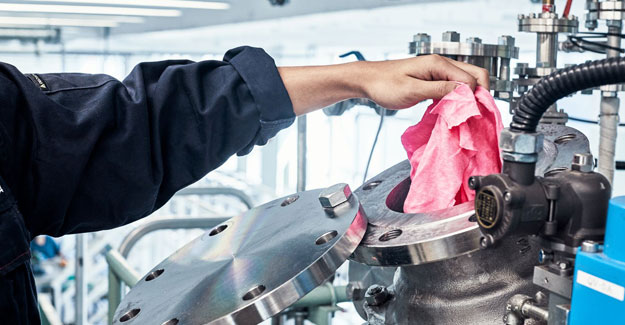The Green Machine To Transform Textile Recycling In Cambodia
- The Green Machine can separate and recycle polyester and cotton blend textiles at scale
- The Green Machine is a hydrothermal method using only heat, water, pressure and a biodegradable green chemical to recycle blend textiles
- No secondary pollution is generated
- The output is long and good quality polyester fibres which can be used to make new garments.
An ambitious project to address textile waste in Cambodia was announced. The lead role is played by the Green Machine, the world’s first technology that can recycle blend textiles at scale, developed by The Hong Kong Research Institute of Textiles and Apparel Limited (HKRITA) and the H&M Foundation.
The announcement was made by an international consortium initiated by Deutsche Gesellschaft für Internationale Zusammenarbeit GmbH (GIZ FAB-RIC project), HKRITA, Chip Mong Insee, Dakota Industri-al, H&M Foundation and VF Corporation. A feasibility study is currently being launched to deploy the Green Machine in Cambodia by 2022. The Green Machine will contribute to a better future for people of Cambodia and the planet.
The Green Machine, developed by HKRITA with the support from H&M Foundation, is the world’s first technology that can separate and recycle polyester and cotton blend textiles at scale without any quality loss. Recycling of single materials has long been possible, but the recycling of blends – and cotton and polyester blends being the world’s most common type of textile – has not. The Green Machine has changed the game. The process uses only heat, water and less than 15% of a biodegradable chemical to separate cotton and polyester materials in a closed loop system.
The Green Machine is a hydrothermal method which uses only heat, water, pressure and a biodegradable green chemical to recycle blend textiles. It is cost effective and time efficient, and generates no secondary pollution since it is a closed loop system where the water, heat and chemicals are used again and again. The output is long and good quality polyester fibres which can be used to make new garments. The cotton is extracted as cellulose powder, which can be used in multiple ways.
In 2020 the first industrial system was built at Kahatex in Indonesia. In 2021, denim supplier ISKO invested in a Green Machine system. The Green Machine in Cambodia is the third industrial order.
“Our aim is to develop technologies and solutions that can have a positive impact on our planet, and the Green Machine is an excellent example of that. The continuously growing demand for this solution will drive change and generate value for the entire fashion and textile industry,” said Edwin Keh, CEO at HKRITA.
The fashion supply chain ranges from production of fibres to the retail channels. However, it is at the manufacturing stages where the most harmful environmental effects are created. The processes are resource intensive in which large amounts of water and chemicals are used. Moreover, an estimated 10-15% of the total fabric used to produce garments currently becomes waste at the cutting stage itself. Today, most of it ends up in landfill or is burnt.
To create a more sustainable fashion future, circular practices are key. Therefore, GIZ through its FABRIC project, brought together all key partners along the garment supply chain to assess the industrial scale development of the Green Machine in Cambodia.
GIZ Fabric will support a feasibility study of The Green Machine in Cambodia so that the private partners could take an informed decision to deploy this cutting-edge technology to start waste recycling in Cambodia for the first time ever, by 2022.
“Better waste management will have a positive impact on communities’ resources such as water, air quality and land use. This will reduce long term stress factors and sources for conflict of different kinds. It will also create new jobs and a sense of pride,” said Marc Beckmann, Project Director of GIZ FABRIC.
Textile Excellence
Previous News
cosmo speciality chemicals develops 5th generation silicone softener “lotosil bhb” range
Next News
with us$ 24 million raised, evrnu wants to scale circular fashion













